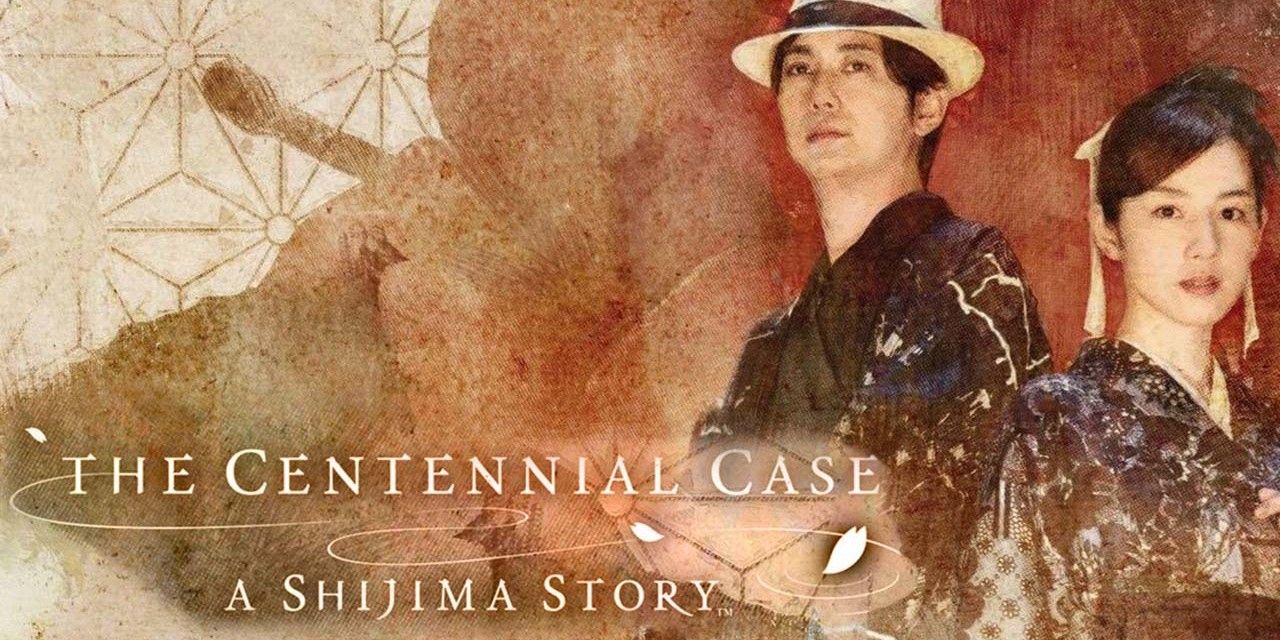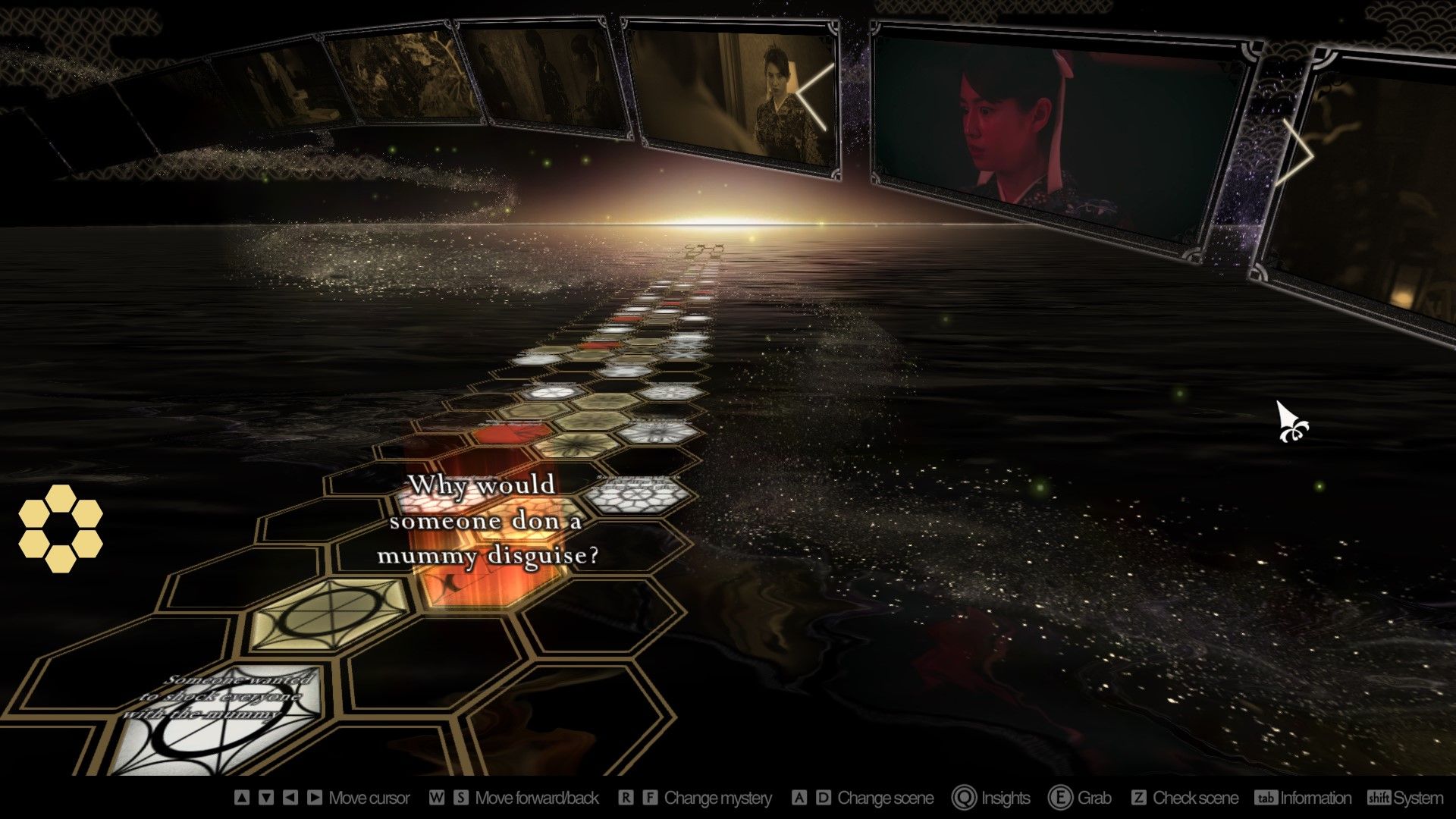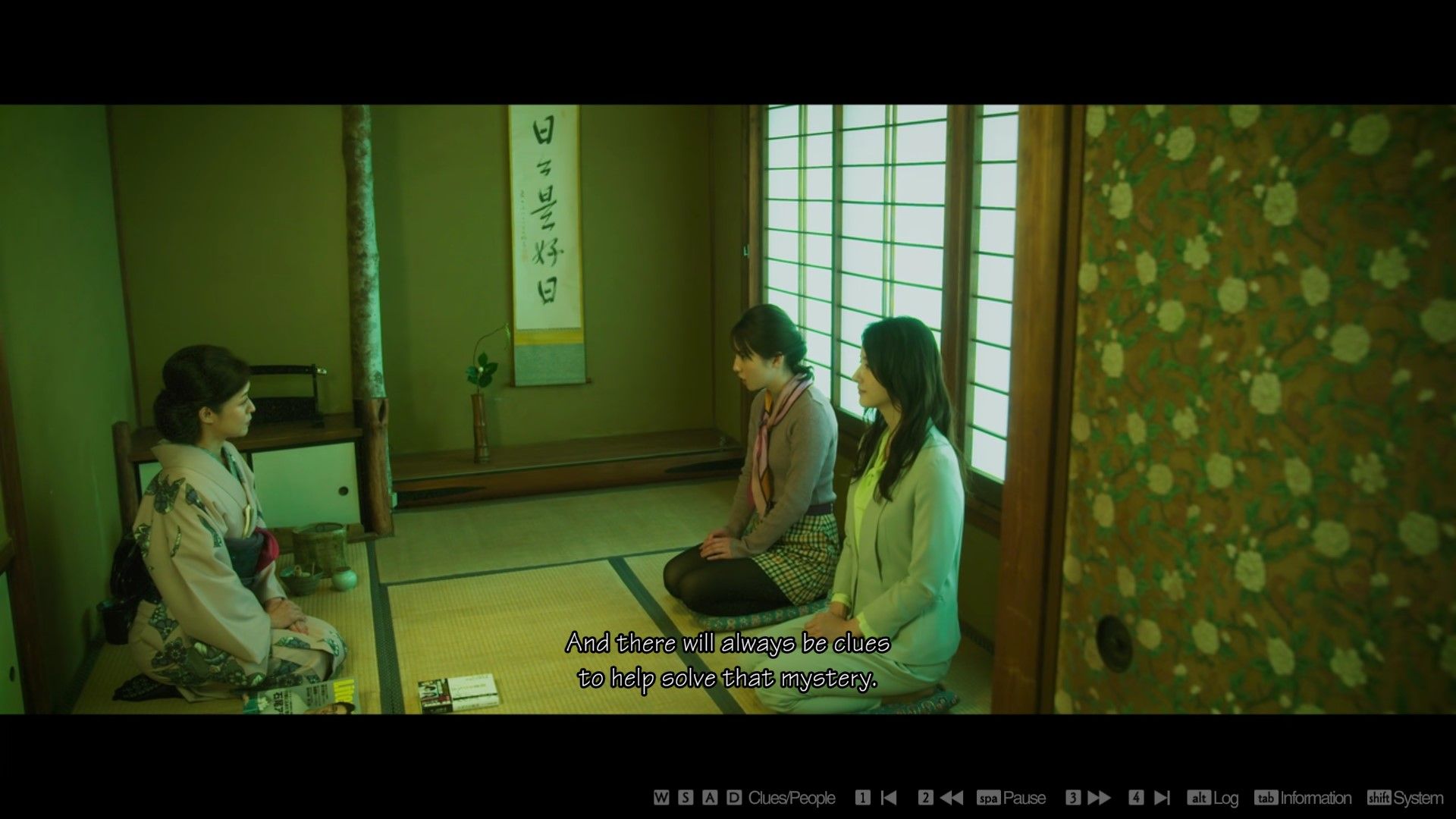While the origins of FMV can be traced back to arcade classics such as Dragon’s Lair, it wasn’t until the 90s that storage mediums and processors could handle these kinds of graphics at home. Fast forward to recent times and there has been a small but noticeable uptick in FMV game creation with titles like Her Story and Square Enix’s most recent offering, The Centennial Case: A Shijima Story.
Being a title composed almost entirely of FMV, the story that these videos tell is the main draw of the game, and on that measure it does not disappoint. Players follow the perspective of mystery author Haruka Kagami as she becomes embroiled in a century spanning mystery involving the Shijima family and their connection to the Tokijiku-no-kaku-no-konomi, a fruit said to grant eternal life, at the behest of her friend, Eiji Shijima. This case breaks down into a game of several smaller mysteries focused on individual deaths over that time period, and solving each one serves as its own chapter in the story. Each section is in a similar vein to an Agatha Christie or Sherlock Holmes adventure, and feel well-written, especially some clever twists.
Outside of the video segments, the main gameplay present in The Centennial Case revolves around using the clues found within the scenes to figure out whatever mystery is currently being discussed. This is done by creating hypotheses within Haruka’s cognitive space, the place where she internally unravels mysteries. Clue tiles are matched with corresponding mysteries to create a logical assumption, and the clever thing that A Shijima Story does is that, while it does the reasoning for the player, all answers up to and including supernatural phenomena are always on the table during this reasoning phase.
This forces the player to separate the wheat from the chaff in terms of these conclusions, and come up with their own logical explanation that fits them together. To help in this process, the game provides a large amount of supplementary material, such as maps and an extensive glossary of terms. This makes sure that all of the relevant information is always in the player’s hands, and a surprising amount of it turns out to be extremely helpful.
The Centennial Case: A Shijima Story manages to strike an interesting and impressive balance in its voice acting and presentation. The actors really sell their roles, but at the same time aren’t afraid to embellish their performances to give certain scenes humorous tones. A good example of this comes in the first chapter where a certain choice causes the characters to all give wistful speeches about the dangers of passionate love, as they all walk off to stare into different corners of the room longingly. Unfortunately, the English dubbing is actually quite distracting - while the acting is perfectly fine, it is the lip syncing that is quite off-putting. For anyone who is used to reading subtitles, the experience with the Japanese audio is far superior because of this.
The Centennial Case: A Shijima Story is worth looking into for novelty alone, but it also manages to be an effective and interesting tale makes it just that much easier to recommend. Mystery is a genre that demands a puzzle worth solving, and this one is a case that delivers all the requisite twists and turns to make the experience feel like time well invested.
The Centennial Case: A Shijima Story was released on May 12th, 2022 for PS4, PS5, Nintendo Switch and PC. Screen Rant was provided with a PS4 and Steam code for the purposes of this review.



